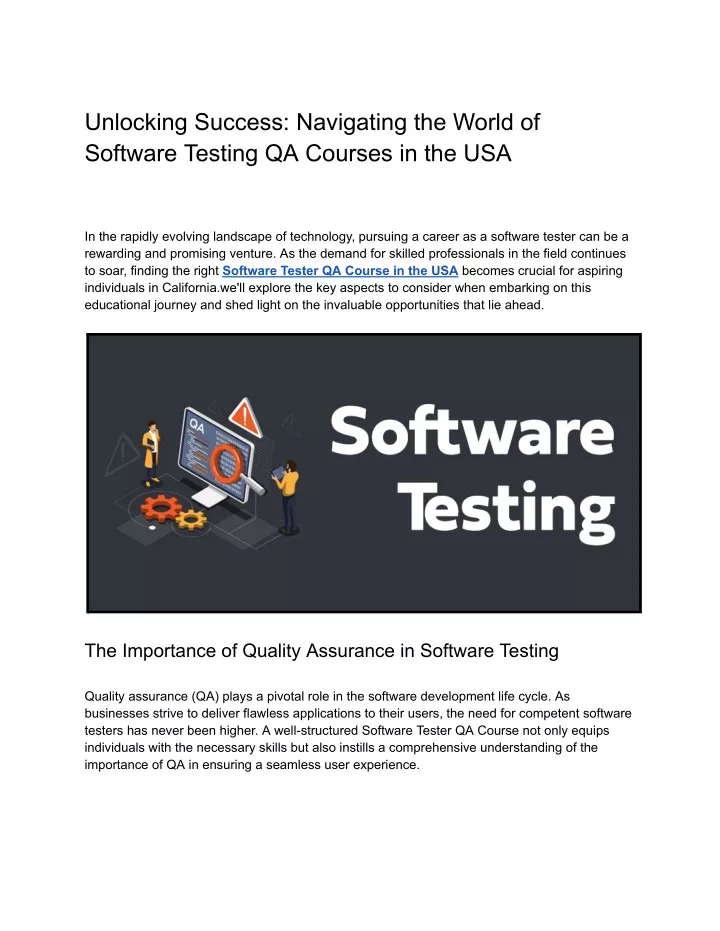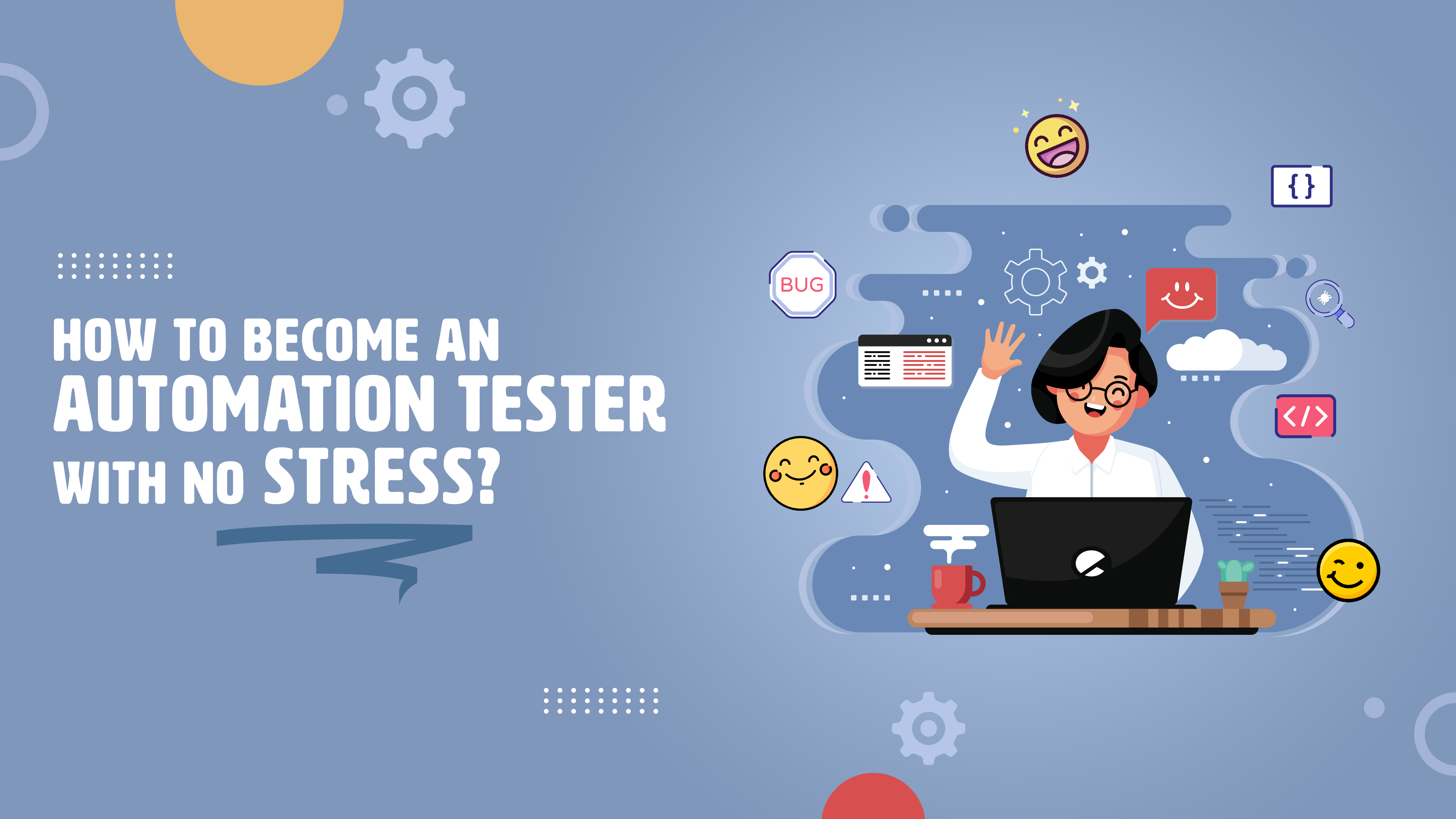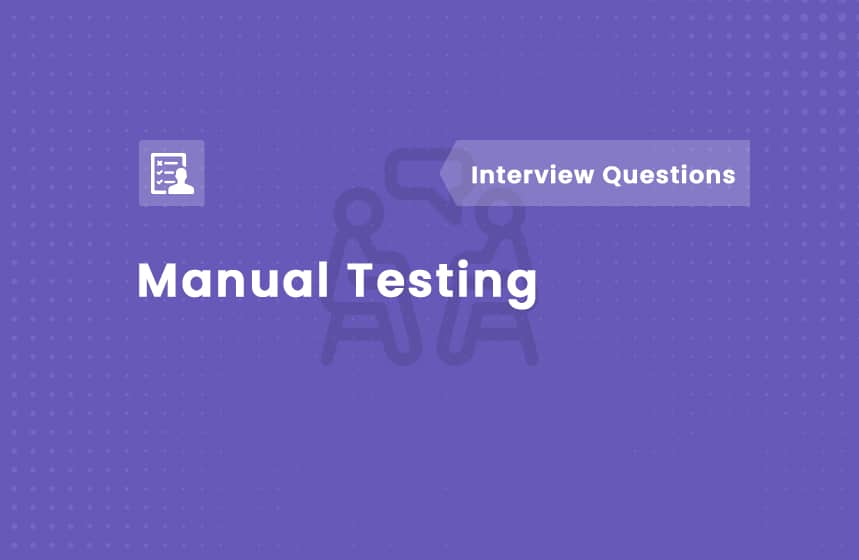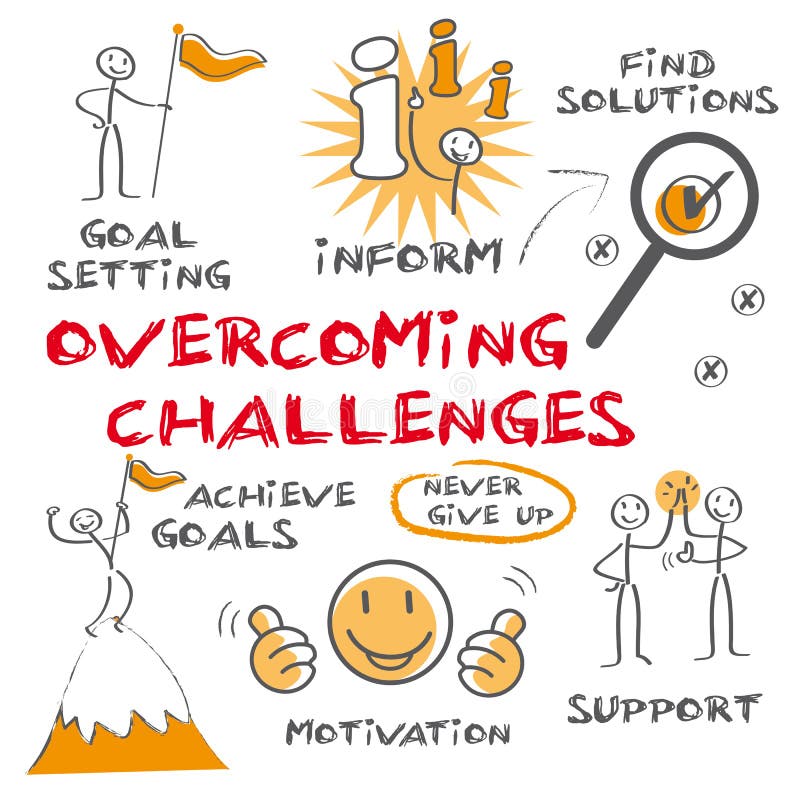Unlocking the World of Software Testing
Software testing is a vital component of the software development life cycle, ensuring that products meet the required standards of quality, functionality, and user experience. As technology advances and software becomes increasingly complex, the demand for skilled testers continues to grow. For those interested in pursuing a career in software testing, the question “how do I become a tester” is a common starting point. In this article, we will explore the steps to become a software tester and provide valuable insights into this rewarding profession.
Software testing involves evaluating software applications to identify defects, errors, and inconsistencies. Testers use various techniques, including manual and automated testing, to ensure that software meets the required specifications and works as expected. The field of software testing offers a range of specializations, from mobile app testing to cloud-based testing, providing opportunities for testers to develop expertise in specific areas.
One of the primary benefits of a career in software testing is the opportunity for growth and development. As technology evolves, new testing methodologies and tools emerge, requiring testers to stay up-to-date with the latest trends and innovations. This constant learning process enables testers to expand their skill set, take on new challenges, and advance in their careers.
In addition to the technical aspects of software testing, this profession also requires strong analytical and problem-solving skills. Testers must be able to identify defects, reproduce errors, and communicate effectively with developers and stakeholders. These skills are highly valued in the industry, making software testing a rewarding and challenging career choice.
For those interested in pursuing a career in software testing, the first step is to acquire the necessary skills and knowledge. This can be achieved through formal education, online courses, or self-study. As we will explore in the following sections, becoming a software tester requires a combination of technical expertise, analytical skills, and dedication to ongoing learning and professional development.
Acquiring the Essential Skills and Knowledge
To become a successful software tester, it’s essential to acquire the necessary skills and knowledge. This includes understanding the software development life cycle, testing methodologies, and tools commonly used in the industry. For those wondering how to become a tester, it’s crucial to start by building a strong foundation in these areas.
One of the key skills required for software testing is analytical thinking. Testers must be able to analyze complex systems, identify defects, and reproduce errors. This requires a logical and methodical approach to problem-solving, as well as the ability to think creatively and outside the box. Additionally, software testers must possess excellent communication skills, as they will be working closely with developers, project managers, and other stakeholders to identify and resolve issues.
In terms of technical skills, software testers should be familiar with tools like JIRA, TestRail, or Selenium. These tools are commonly used in the industry for test management, automation, and defect tracking. Testers should also have a basic understanding of programming languages, such as Java or Python, and be able to write simple scripts to automate testing tasks.
Another critical aspect of software testing is attention to detail. Testers must be meticulous in their work, ensuring that all aspects of the software are thoroughly tested and validated. This requires a high level of concentration and focus, as well as the ability to work accurately and efficiently.
For those looking to acquire the necessary skills and knowledge to become a software tester, there are various resources available. Online courses, tutorials, and certification programs can provide a comprehensive introduction to software testing, while also offering specialized training in specific areas, such as automation or agile testing.
When it comes to choosing a training program, it’s essential to consider the curriculum, instructor expertise, and hands-on learning opportunities. Look for programs that offer a combination of theoretical and practical training, as well as opportunities to work on real-world projects and collaborate with other students.
By acquiring the essential skills and knowledge required for software testing, individuals can set themselves up for success in this rewarding and challenging career. Whether you’re just starting out or looking to transition into a new role, investing in your education and training is crucial for achieving your goals and advancing in the field.
Getting the Right Education and Training
For those interested in becoming a software tester, getting the right education and training is crucial. While a degree in computer science or a related field can be beneficial, it’s not the only path to becoming a software tester. In fact, many successful software testers have learned through online courses, certifications, and hands-on experience.
One popular option for aspiring software testers is to pursue a certification in software testing, such as the ISTQB (International Software Testing Qualifications Board) or CSTE (Certified Software Test Engineer) certification. These certifications demonstrate a level of competence in software testing and can be beneficial when applying for jobs.
Online courses are another excellent way to learn software testing skills. Websites like Udemy, Coursera, and edX offer a wide range of courses on software testing, from introductory courses to advanced topics like automation and agile testing. These courses can be completed at your own pace and often include hands-on exercises and projects to help you practice your skills.
For those who prefer a more traditional learning environment, degree programs in computer science or related fields can provide a comprehensive education in software testing. These programs typically include coursework in software development, testing methodologies, and tools like JIRA and Selenium.
When choosing an educational path, it’s essential to consider the pros and cons of each option. For example, online courses can be more affordable and flexible than degree programs, but may not provide the same level of hands-on experience. Certifications can demonstrate competence, but may not be as comprehensive as a degree program.
Ultimately, the key to becoming a successful software tester is to find a educational path that works for you and provides the skills and knowledge you need to succeed. Whether you choose to pursue a certification, online courses, or a degree program, the most important thing is to stay motivated and keep learning.
For those wondering how to become a tester, it’s essential to remember that education and training are just the first steps. Gaining practical experience and building a portfolio of your work is crucial to landing a job in software testing. In the next section, we’ll explore the importance of gaining practical experience and building a portfolio.
Gaining Practical Experience and Building a Portfolio
Gaining practical experience is essential for becoming a successful software tester. While education and training can provide a solid foundation, hands-on experience is crucial for developing the skills and knowledge needed to succeed in this field. For those wondering how to become a tester, gaining practical experience is a critical step.
One way to gain practical experience is through internships or volunteer work. Many companies offer internships or volunteer opportunities for aspiring software testers, providing a chance to work on real-world projects and gain hands-on experience. These opportunities can be invaluable for building a portfolio and making industry connections.
Another way to gain practical experience is through personal projects. Creating a personal project, such as a mobile app or a web application, can provide a chance to apply testing skills and knowledge in a real-world setting. This can also be a great way to build a portfolio and demonstrate skills to potential employers.
Building a portfolio is also essential for software testers. A portfolio should showcase testing skills and experience, including examples of test plans, test cases, and test reports. Creating a blog or contributing to open-source projects can also be a great way to demonstrate skills and build a portfolio.
When building a portfolio, it’s essential to focus on quality over quantity. A few high-quality examples of testing work can be more impressive than a large quantity of low-quality examples. It’s also essential to tailor the portfolio to the specific job or industry being applied for.
In addition to building a portfolio, it’s essential to stay up-to-date with industry trends and developments. Attending conferences, meetups, and webinars can provide a chance to learn about new testing methodologies and tools, as well as network with other professionals in the field.
By gaining practical experience and building a portfolio, software testers can demonstrate their skills and knowledge to potential employers and advance their careers. In the next section, we’ll explore the importance of preparing for common testing interviews and assessments.
Preparing for Common Testing Interviews and Assessments
Preparing for common testing interviews and assessments is crucial for aspiring software testers. This includes reviewing testing concepts, practicing whiteboarding exercises, and preparing answers to common interview questions. By being prepared, software testers can increase their chances of acing the interview and landing their dream job.
One of the most common types of testing interviews is the whiteboarding exercise. This involves solving a testing problem on a whiteboard, usually in front of a panel of interviewers. To prepare for this type of interview, software testers should practice solving testing problems on a whiteboard, using a variety of testing techniques and tools.
Another important aspect of testing interviews is reviewing testing concepts. This includes understanding the different types of testing, such as manual and automated testing, as well as testing methodologies like Agile and Scrum. Software testers should also be familiar with testing tools like JIRA, TestRail, and Selenium.
In addition to reviewing testing concepts, software testers should also prepare answers to common interview questions. This includes questions like “What is your experience with testing?” or “How would you approach testing a new software application?” By preparing answers to these types of questions, software testers can demonstrate their knowledge and experience to potential employers.
It’s also important for software testers to be prepared to ask questions during the interview. This includes questions like “What is the company’s testing process?” or “How does the company approach testing and quality assurance?” By asking questions, software testers can demonstrate their interest in the company and the position, as well as their knowledge of testing concepts.
By preparing for common testing interviews and assessments, software testers can increase their chances of success and land their dream job. In the next section, we’ll explore the importance of staying up-to-date with industry trends and developments.
Staying Up-to-Date with Industry Trends and Developments
The software testing industry is constantly evolving, with new technologies and methodologies emerging all the time. To stay ahead of the curve, it’s essential for software testers to stay up-to-date with industry trends and developments. This can be achieved by attending conferences, meetups, and webinars, as well as following industry leaders and blogs.
Conferences and meetups are a great way to learn about the latest developments in software testing. These events provide a platform for industry experts to share their knowledge and experiences, and for attendees to network and learn from each other. Some popular conferences for software testers include the Software Testing Conference and the Agile Testing Conference.
Webinars are another excellent way to stay up-to-date with industry trends and developments. These online events provide a convenient and flexible way to learn about new technologies and methodologies, and can be attended from anywhere in the world. Many software testing companies and organizations offer webinars on a regular basis, covering topics such as automated testing, agile testing, and test management.
Following industry leaders and blogs is also a great way to stay informed about the latest developments in software testing. Many industry leaders and experts share their knowledge and experiences through blogs and social media, providing valuable insights and advice for software testers. Some popular blogs for software testers include the Software Testing Blog and the Testing Curator Blog.
In addition to attending conferences, meetups, and webinars, and following industry leaders and blogs, software testers can also stay up-to-date with industry trends and developments by reading industry publications and participating in online forums. Some popular industry publications include the Software Testing Magazine and the Testing Times Magazine.
By staying up-to-date with industry trends and developments, software testers can ensure that they have the skills and knowledge needed to succeed in this rapidly evolving field. In the next section, we’ll explore the importance of networking and joining testing communities.
Networking and Joining Testing Communities
Networking and joining testing communities is an essential step in becoming a successful software tester. By connecting with other testers, you can gain valuable insights, learn about new testing methodologies and tools, and stay up-to-date with industry trends. In this section, we’ll explore the benefits of networking and joining testing communities, and provide tips on how to get started.
One of the most popular online communities for software testers is Reddit’s r/softwaretesting. This community has over 10,000 members and is a great place to ask questions, share knowledge, and learn from others. Other popular online communities include the Software Testing Forum and the Testing Community Forum.
In addition to online communities, attending local testing meetups and conferences is a great way to network with other testers. These events provide a platform for testers to share their experiences, learn about new testing methodologies and tools, and connect with other professionals in the field. Some popular testing conferences include the Software Testing Conference and the Agile Testing Conference.
Joining testing communities can also provide opportunities for mentorship and knowledge sharing. Many experienced testers are willing to share their knowledge and experience with newcomers, and can provide valuable guidance and advice. By joining testing communities, you can tap into this knowledge and expertise, and gain a deeper understanding of the testing field.
Another benefit of networking and joining testing communities is the potential for job opportunities. Many companies and organizations use testing communities to find and recruit new talent. By connecting with other testers and showcasing your skills and experience, you can increase your chances of landing a job in the testing field.
In conclusion, networking and joining testing communities is an essential step in becoming a successful software tester. By connecting with other testers, you can gain valuable insights, learn about new testing methodologies and tools, and stay up-to-date with industry trends. In the next section, we’ll explore the common challenges faced by new software testers, and provide advice on how to overcome them.
Overcoming Common Challenges and Staying Motivated
As a new software tester, you may face several challenges that can make you feel discouraged or demotivated. Imposter syndrome, self-doubt, and limited job opportunities are just a few of the common challenges that many new testers face. However, with the right mindset and strategies, you can overcome these challenges and stay motivated.
One of the most common challenges faced by new software testers is imposter syndrome. This is a feeling of inadequacy or self-doubt that can make you feel like you’re not good enough or that you’re pretending to be something you’re not. To overcome imposter syndrome, it’s essential to focus on your strengths and accomplishments, and to remind yourself that everyone starts somewhere.
Another challenge faced by new software testers is limited job opportunities. With so many experienced testers in the field, it can be difficult to stand out and land a job. However, by building a strong portfolio, networking with other testers, and staying up-to-date with industry trends, you can increase your chances of landing a job.
To stay motivated, it’s essential to set achievable goals and celebrate your successes. This can be as simple as setting a goal to learn a new testing tool or technique, and then celebrating when you’ve achieved it. It’s also essential to find a supportive community of testers who can offer guidance, advice, and encouragement.
In addition to setting goals and finding a supportive community, it’s also essential to take care of yourself. This includes getting enough sleep, exercising regularly, and taking breaks when you need them. By taking care of your physical and mental health, you can stay motivated and focused, even in the face of challenges.
Finally, it’s essential to remember that becoming a successful software tester takes time and effort. It’s not something that happens overnight, but rather something that requires dedication, hard work, and perseverance. By staying motivated, focused, and committed to your goals, you can overcome common challenges and achieve success in the field of software testing.







